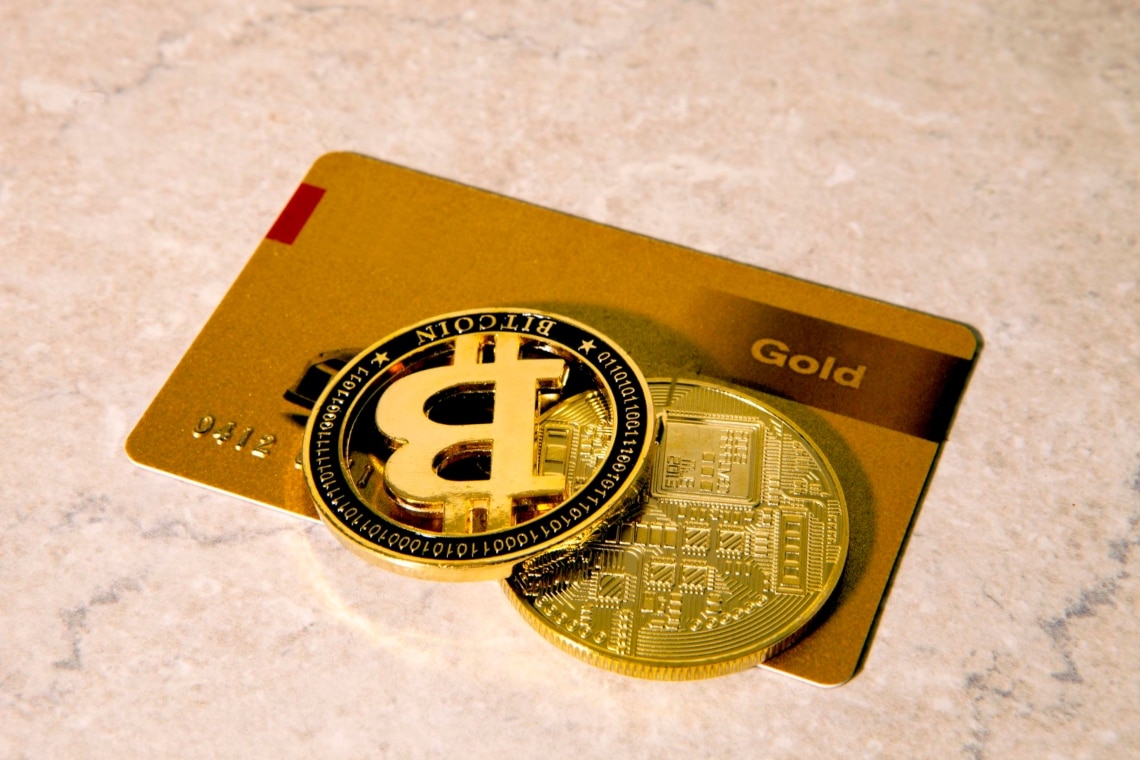The Crypto Visa card has announced a collaboration with Blockchain.com, a popular cryptocurrency wallet, to activate a new crypto debit card. The launch of the new crypto debit card follows the announcement of similar products by FTX and BitOasis.
Cryptocurrency exchange Blockchain.com has partnered with Visa to launch a new crypto card, initially available only to US residents.
The new crypto card allows users to pay using their cryptocurrency or cash balance, wherever Visa debit cards are accepted.
Summary
How does the new crypto debit card work
In an announcement on 26 October, Blockchain.com revealed that there would be no sign-up or annual fees, no transaction fees, and users would earn 1% of all cryptocurrency purchases.
The new Crypto card is powered by California-based payments company Marqeta, which helped develop the crypto financial company’s Swipe crypto visa card in September 2020.
The announcement comes on the heels of news regarding Visa’s close partnership with cryptocurrency exchange FTX to launch a debit card in 40 countries on 7 October.
Peter Smith, CEO of Blockchain.com, said in an interview with Yahoo Finance that the card already had 50,000 members on the waiting list, adding:
“There’s still a lot of demand for crypto products, but you’re seeing that demand shift away from trading and more towards folks that are interested in using DeFi, using their balances.”
After the announcement, Visa’s head of cryptocurrency, Cuy Sheffield, stressed that worldwide acceptance is necessary for cryptocurrency adoption to continue to grow.
What crypto debit cards are and how they work
Beyond the novelty, crypto debit cards are not new to the market and are already in use in many countries. Let’s see what they are specifically, how they work, and which crypto cards are the most prestigious and widely used.
Crypto cards, also referred Bitcoin debit cards, are debit cards linked to cryptocurrencies. Their progressive adoption has accelerated the use and adoption of Bitcoin and cryptocurrencies in everyday life.
Crypto debit cards are conventional debit cards that allow people to make purchases online, in-store, and even withdraw money from ATMs using cryptocurrencies.
The operation is actually quite simple. Basically, all that is required is for a crypto debit card to be topped up with a specific cryptocurrency. Once this is done, the debit cards convert the cryptocurrency it contains into whatever fiat currency you need.
A crucial aspect to understand is that through crypto cards, one does not pay directly in Bitcoin or the cryptocurrency of choice, but rather that the digital assets are first converted into the local fiat currency and then sent to the merchant.
Crypto cards come in two forms. First, they are available in the form of physical cards that can be held in the crypto wallet, employed to make payments and withdraw money. Second, they are available in the form of virtual cards and allow online purchases to be made.
The rise in popularity of Bitcoin and other cryptocurrencies has created a need for cryptocurrency holders to be able to quickly access their funds to spend them.
Before crypto cards, in order to cash out cryptocurrencies in fiat currency for everyday spending, holders had to convert their cryptocurrencies to a fiat currency and then wait for the funds to reach their bank account.
However, this process turned out to be too slow and not very efficient
Crypto cards therefore appeared on the market precisely to meet this need.
Recently, Visa and Mastercard began to support cryptocurrencies in their network. Their launch has effectively revolutionized the entire cryptocurrency ecosystem, sparking more interest and further pushing up the adoption of crypto cards among the general public.
The rival to the Visa crypto card: Mastercard
Following the crypto cards proposed and launched by Visa, Mastercard, Visa’s main competitor, was not slow to operate in the sector as well.
In fact, on 25 October, Mastercard signed a strategic partnership with BitOasis, the leading crypto platform in the Middle East and North Africa (MENA), to launch a series of crypto card programs designed to facilitate the adoption of digital assets in the region.
The partnership follows a $30 million Series B funding round by BitOasis, which closed in October 2021. The funding facilitated the expansion of its Dubai-based platform in MENA .
As a result of the partnership, BitOasis customers will be able to link their wallets to the new card and convert cryptocurrencies to fiat to enable them to use Mastercard’s global merchant network, with the card scheduled to launch in early 2023.
BitOasis co-founder and CEO Ola Doudin sees huge potential for adoption within the area. In fact, he states:
“We continue to witness sustained demand amongst our customers for crypto to be integrated into, and relevant, for their daily lives. Research tells us that 47% of the Middle East population now believe crypto is the future of money.”
Therefore, we just have to stand by and watch, or, why not, start using a crypto card, to see how it plays out. Will crypto cards really be the future? And, if so, who among Visa and Mastercard will provide a better and more efficient service?




